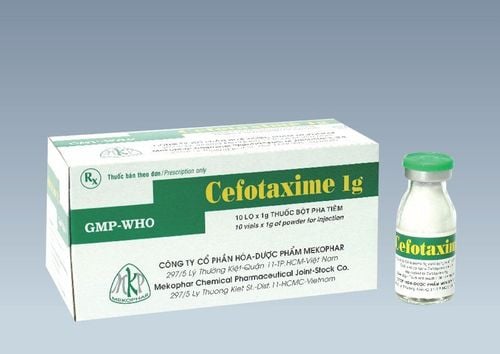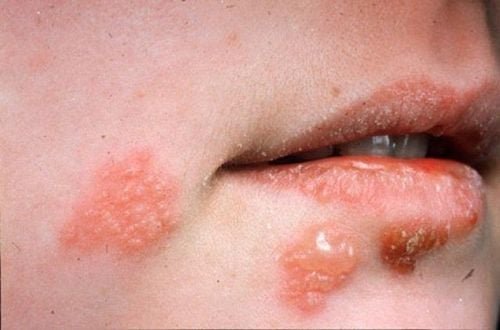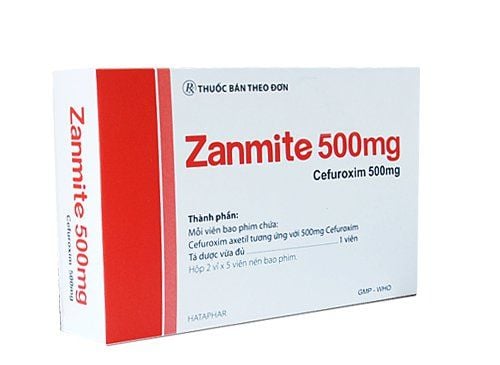This is an automatically translated article.
The article was consulted with Specialist Doctor I Tran Van Sang - Dermatologist - Department of Medical Examination & Internal Medicine - Vinmec Da Nang International General Hospital.One of the most common sexually transmitted diseases today is gonorrhea, especially for young people of sexually active age. It is because of ignorance along with timidity and apprehension when visiting this delicate disease that people unknowingly make the symptoms of the disease worse and worse, causing extremely unfortunate consequences. .
1. What causes gonorrhea?
Gonorrhea is one of the most common sexually transmitted infections (STIs), caused by the gram-negative bacterium Neisseria gonorrhoeae, which is usually present in areas where many bodily secretions such as vaginal secretions are abundant. vagina, semen, oropharyngeal secretions. Gonorrhea can be transmitted directly from one person to another through direct oral, genital or anal contact... or through casual contact such as swimming pools, sharing toilets...Some of the following are commonly mentioned:
Vaginal, oral, or anal promiscuous sex (especially homosexuals) without using protection such as condoms rubber. Sharing another person's sex toys without washing them or with a protective condom, so be very careful when sharing items such as underwear, towels, toothbrushes, razors ... Pregnant women with gonorrhea, if not treated and guided by a specialist, will easily pass it on to their children, affecting the baby's development later. Or in women who have gonorrhea during childbirth through the lower tract, it is easy to spread it to the baby..

2. Is gonorrhea contagious?
When a person has gonorrhea (acquired from another person during previous sexual intercourse) there is a possibility of infecting a sexual partner during intercourse. It is worth mentioning that even people who have gonorrhea but have not yet shown symptoms can still spread it to others. Therefore, when you discover that you are sick, you must stop having sex and receive active treatment for at least 7 days until the treatment is complete. Gonorrhea is very persistent, so the patient must be strict in the treatment process.3. How to detect gonorrhea early and most accurately?
For all sexually active people, both men and women are susceptible to the disease. When the following signs appear, we should go to see a specialist immediately, absolutely not out of fear or shame, but put our trust in unscrupulous private clinics.
Swelling, redness and pain in the penis Unusual discharge, foul odor in the penis, stomata Pain, burning when urinating Feeling itchy or redness in the genitals, anus For women, you should see a doctor when experiencing the following signs:
Excessive discharge, abnormal discharge from the vagina Pain when urinating There may be a sore throat ( can occur if oral sex) Pain after sex Burning, red hot sensation in the genitals or anus... These are some of the early signs and symptoms that can be thought of as the cause. Caused by gonorrhea, but in fact there are many such sexually transmitted diseases, such as: syphilis, genital warts, vaginal infections... Therefore, to make a sure diagnosis To be certain of gonorrhea, doctors give the following test indications:
Gram-stained bacteria test: This method has relatively high sensitivity and specificity if a specimen is taken from the urethra of men with symptoms. evidence mentioned above. The image after staining shows coffee bean-shaped gram-negative cocci in neutrophils. Fungal testing, culturing for antibiotic use: The culture method not only helps doctors diagnose the cause of the disease, but also find out the causes associated with worsening symptoms. of other bacteria or fungi. In addition, the strength of this method is that it is possible to make antibiotic charts so that the most suitable and effective drugs can be selected to treat the disease. Specimens can be obtained very easily from: urethra, cervix, anorectal or pharyngeal fluid.
4. How dangerous is gonorrhea?
The nature of the treatment of gonorrhea really requires the patient to be really patient and serious if they want to cure the disease completely. The disease will cause very serious consequences if not treated promptly and properly. Because the disease is a secret and delicate disease, that's why patients often feel embarrassed when they go to the doctor, but give their trust to clinics that are not reputable in the field of treatment. that has created favorable conditions to promote bacteria growth and will most likely cause the following complications:The disease causes decreased sex drive due to pain and discomfort during sex. Causing trouble, worrying about diseases that affect quality of life Severe complications can lead to many male diseases such as: orchitis, urethritis, prostatitis, epididymitis. ... very dangerous to reproductive function as well as sex in men, can even lead to infertility. Inflammation of the vagina, appendages, uterus and ovaries in women, can affect a woman's reproductive function. Inflammation upstream leads to inflammation of the bladder, pyelonephritis, kidney...making the already difficult treatment process even more difficult and persistent... Babies infected from their mothers will be very dangerous to the process. holistic development of children.
5. Preventing gonorrhea properly
The most important factor to not have to worry about disease is prevention, but how to properly and effectively prevent gonorrhea, not many people can say in detail:Using condoms rubber during vaginal, oral, and anal intercourse. Ask directly and understand the health and medical status of your partner Avoid sexual intercourse indiscriminately without taking preventive measures Visit immediately when experiencing the above signs so that a treatment plan can be given. Correct treatment Must be patient and serious in treatment, must treat sexual partners if one of them is sick Do not share items with others such as towels, underwear, toothbrushes... When pregnant If you are sick, you must consult a doctor to avoid infecting the baby. Patients need to rest, avoid cycling, running, causing trauma to the genitals - urinary tract. Combined treatment of infections after gonorrhea (C.trachomatis, streptococcus, bacteria...). Periodic clinical examination and re-testing. Sexually transmitted diseases are becoming a growing problem in society. Partly due to the subjective lack of understanding and partly due to the open mind in the relationship of young people today, but above all, the feeling of timidity and fear when going to the doctor makes the disease more and more serious. Therefore, when experiencing signs of a sexually transmitted disease, visit a specialist to receive the most appropriate advice and treatment regimen.
Please dial HOTLINE for more information or register for an appointment HERE. Download MyVinmec app to make appointments faster and to manage your bookings easily.














